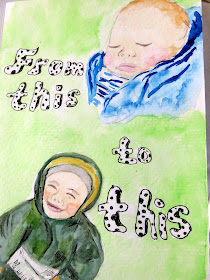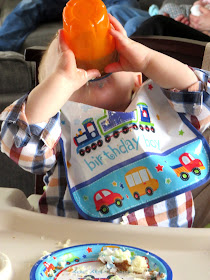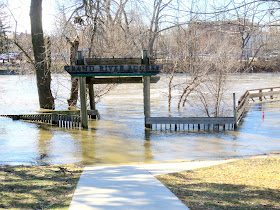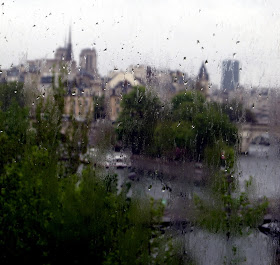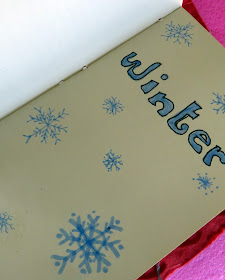 |
| My mother was born in this house that still stands in our city. |
What does it mean to examine one’s self? Can self-portraits – and all versions of that such as memoir, personal essays, and such – heal us and help us grow as creatives? How do we make the space for blank canvases and blank pages if we ignore our need to create? Can we expect to fill those pages and canvases with our creations if we dive deeper into who we are?
Part of living a creative life is the understanding that we must refill our own wells in some way on a regular basis, otherwise, we find ourselves resentful of our own lives. Without the time or space to pursue our creative ways, we will burn out. Our souls demand that we uphold the responsibility of using our gifts. So how does looking at ourselves help us or hurt us?
Taking this road trip through history has been and continues to be a journey of discovery. But it isn't just names, dates and birthplaces I've discovered. I've also learned some stories about my ancestors and -- perhaps more important -- something about myself.
I'm sharing that in the current issue of Modern Creative Life right HERE. I hope you'll stop by and read it.
 |
| Which one do you think is my mom? |
 |
| When we found this photo of our grandmother, we realized how much she looked like one of my cousins. |
And if you haven't taken that journey (and I know -- many who read this blog haven't even considered looking into their past) I offer these suggestions for the "just in case" day that you take this journey on.
Eight Tips for Your Future Geneology Journey
- Ask questions of your parents while they are here -- or your grandparents? Even better. Write it down somewhere and let someone know where it is. And consider printing it out -- electronic documents have a bad way of getting deleted or lost in a hard drive crash!
- Put labels on the backs of old photos while people are still around to identify them.
- Get a file and toss in documents like funeral handouts with birth and death dates, newspaper clippings or obituaries of family members.
- If you have oral history on "old media" (cassette tapes, etc.) transcribe them or note key points, even if you keep the original. And of course back up electronic documents.
- If you have old family Bibles or cookbooks, check inside for notes or newspaper clippings. They often have birth/death dates and if you are lucky like me, you'll find a newspaper clipping describing your great grandparents' wedding reception!
- Remember, it's not just "all about me" but it's all about them, so before you throw out your sister's diary or your mother's old calendar -- all stuck in a box in the basement -- or a postcard sent from afar, check for the stories.
- And finally, remember the line I first heard in "The DaVinci Code." "History is written by the winners." Stories "evolve" over time (usually for the better!), particularly those shared through oral history. Get as close to the original source as possible. Save the wills and legal docs long after the scores are settled. They are part of the story.
And then when you're ready to roll, your job will be loads easier than mine!
 |
| I never would have researched the fascinating story of the confectionery industry in 1800s Buffalo if I hadn't looked into the stories of my great grandfather. |
Sharing with: Let's Keep in Touch at Let's Add Sprinkles


